Group test: Electric cars; Hyundai Ioniq v Volkswagen E-Golf v BMW i3 v Nissan Leaf
Four bright sparks on an electric circuit of London
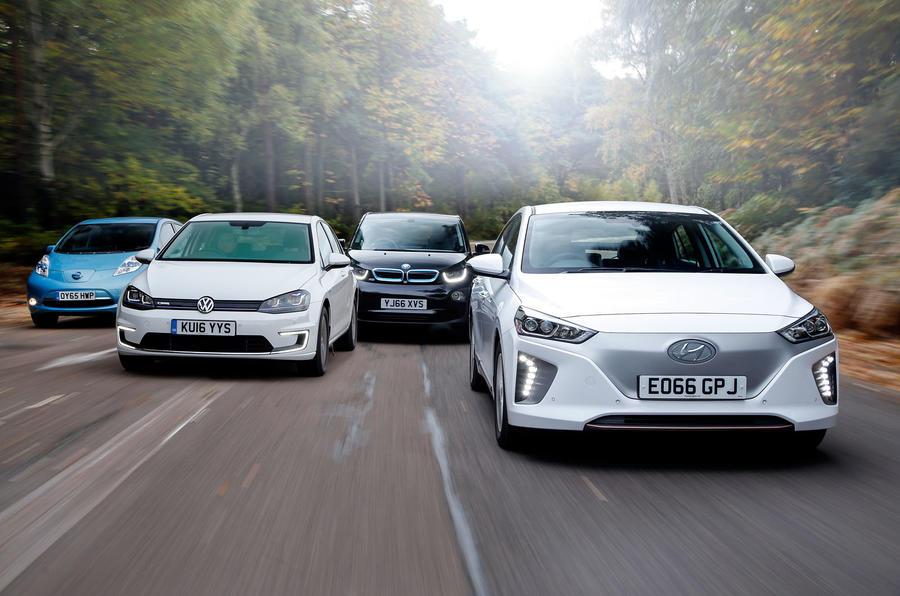
Your support helps us to tell the story
From reproductive rights to climate change to Big Tech, The Independent is on the ground when the story is developing. Whether it's investigating the financials of Elon Musk's pro-Trump PAC or producing our latest documentary, 'The A Word', which shines a light on the American women fighting for reproductive rights, we know how important it is to parse out the facts from the messaging.
At such a critical moment in US history, we need reporters on the ground. Your donation allows us to keep sending journalists to speak to both sides of the story.
The Independent is trusted by Americans across the entire political spectrum. And unlike many other quality news outlets, we choose not to lock Americans out of our reporting and analysis with paywalls. We believe quality journalism should be available to everyone, paid for by those who can afford it.
Your support makes all the difference.For an electric car to be relevant as a long-legged mile-muncher, it needs to fulfil a specific set of criteria. First, it needs to be a Tesla.
Since there is no second, we’ve tested this quartet of electro-hatches exactly where they’re best suited: London.
Other cities are available, apparently. But nowhere else can match the capital for the sheer breadth and depth of urban misery it delivers, so here we are. Here we are in the land of congestion charges, low emission zones and the whole squalid matter of Croydon.
And here we are in a Hyundai Ioniq, the latest addition to the electric hatchback market. We have it alongside three stern challengers in the BMW i3, the VW E-Golf and the evergreen Nissan Leaf.
Aside from being the worst joke ever, that’s a reference to the fact that the Leaf has been around for six years now. Electric cars are no longer novelty but reality – and with the market for them growing by 50% each year, they’re getting more real all the time.
Being six years old counts against the Leaf, though. Its cabin feels dated compared to those of the Golf and i3, which in turn are great because in the Golf’s case, it’s a Golf, and in the i3’s case it’s a brilliantly conceived bespoke window on the future.
The i3’s screen graphics are pin-sharp, its dash design clean as a whistle and its seating position imperious. It’s a great place to sit. The Ioniq pitches in with a good showing too – its displays are crisp and clear, its seats comfortable and its whole cabin impressively roomy.
That’s a result of its big body and long wheelbase, which can make it a little cumbersome around town – as can a heavy steering wheel. The Ioniq doesn’t feel as nippy as the best of the others, though it can coast very effectively before slowing almost to a halt when you press the energy regeneration button – the idea being that this way, you don’t waste any energy by using the brakes.
The same principle applies in the i3, in which just backing off the loud pedal can be like trampling on the anchors. BMW’s purpose-built body houses its batteries at the bottom of a super-light structure, so it has a very low centre of gravity, and this means better handling than its tall, narrow body would have you believe – but it’s firmly sprung, so you have to put up with a ride that doesn’t always feel well suited to running around in town.
The Leaf, by contrast, sits on soft springs designed to soak up the bumps. They do, but they also allow enough body roll to take the edge off your experience behind the wheel.
As for the Golf, it’s a Golf. With an electric motor. That’s the only real difference between it and its fossil-fuelled stablemates.
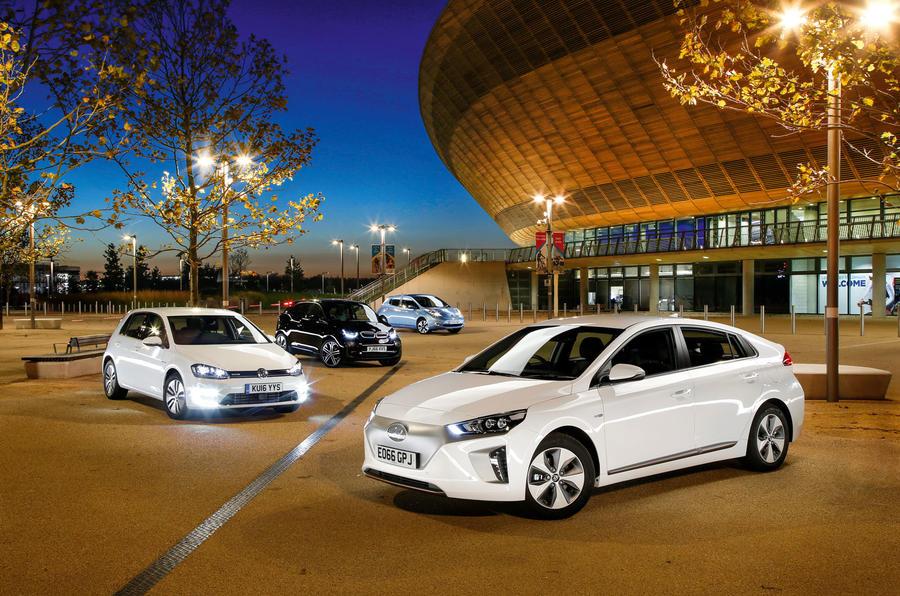
So what we have here is four cars, each taking its own approach. If there’s an overwhelming impression, though, it’s that the two German vehicles have a feeling of real quality that sets them apart from their Far Eastern opponents.
Of the two, the Golf is very good for the reasons why every other Golf is very good. Well, not the R, but you get the idea.
The i3, however, remains one of the most imaginative, effective, pleasing and enjoyable cars out there, electric or not. It’s one of the first examples of a major manufacturer treating alternative fuels not as a necessary evil but an opportunity to create something special.
And it is very special. Very special, and very much top of this class. The Ioniq is a worthy addition, and the Leaf will no doubt come back stronger one day. But for now, on the streets of London BMW is streets ahead.
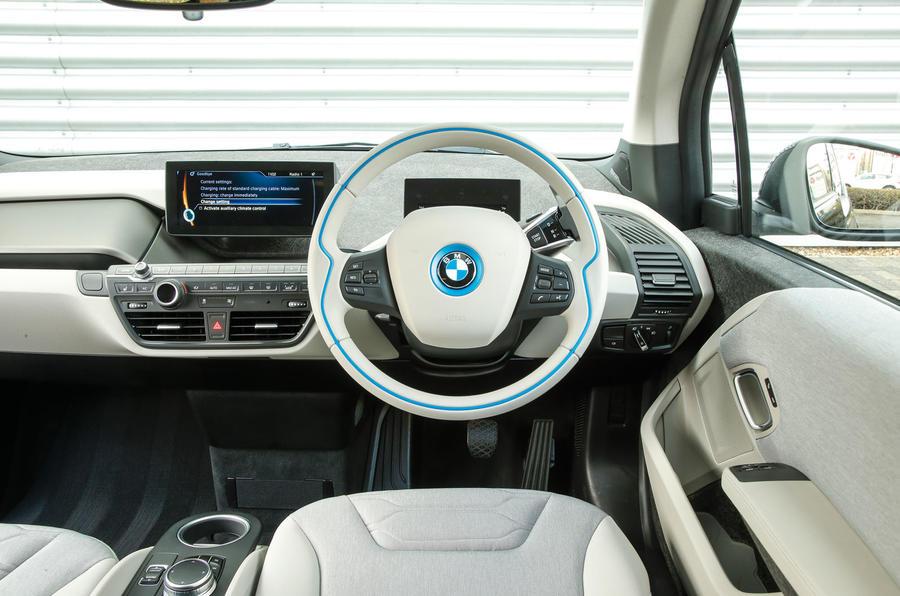
1st. BMW i3 94Ah
Rating 5/5;
Price £27,830 (inc. £4500 Govt grant);
Typical monthly PCP cost £299;
Power 168bhp;
Torque 184lb ft;
Battery capacity33kWh;
Charge time 12hrs (3-pin), 3.5hrs (32A wallbox);
Fast-charge standard CCS (125A, 1.25hrs);
Kerb weight 1320kg;
Power-to-weight 127bhp per tonne;
0-62mph 7.3sec;
Top speed93mph;
NEDC claimed range 124 miles;
Urban test economy 5.3m/kWh;
Urban test range 175 miles;
Insurance group/cost21E/£618
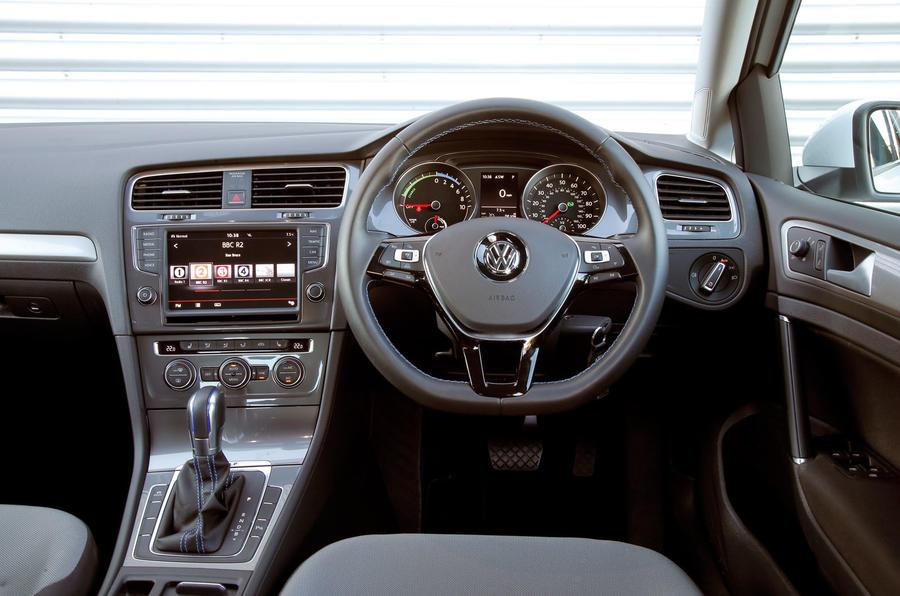
2nd. VW e-Golf
Rating 4.5/5;
Price £27,180 (inc. £4500 Govt grant);
Typical monthly PCP cost £400;
Power 113bhp;
Torque 199lb ft;
Battery capacity 24.2kWh;
Charge time 12hrs (3-pin), 4.5hrs (32A wallbox);
Fast-charge standard CCS (125A, 0.75hrs);
Kerb weight 1585kg;
Power-to-weight 71bhp per tonne;
0-62mph 10.4sec;
Top speed 86mph;
NEDC claimed range 118 miles;
Urban test economy 4.2m/kWh;
Urban test range 102 miles;
Insurance group/cost 15/£501
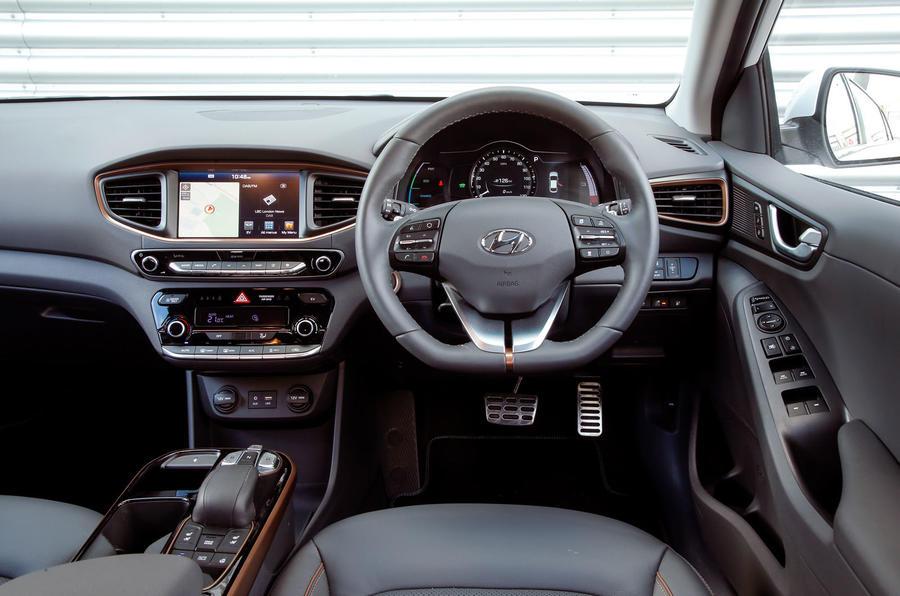
3rd. Hyundai Ioniq Electric Premium SE
Rating 4/5;
Price £26,295 (inc. £4500 Govt grant);
Typical monthly PCP cost £313;
Power 118bhp;
Torque 218lb ft;
Battery capacity 28kWh;
Charge time 12hrs (3-pin), 4.5hrs (32A wallbox);
Fast-charge standard CCS (125A, 0.75hrs);
Kerb weight 1475kg;
Power-to-weight 80bhp per tonne;
0-62mph 9.9sec; Top speed 103mph;
NEDC claimed range 160 miles;
Urban test economy 4.7m/kWh;
Urban test range 132 miles;
Insurance group/cost 17/£545
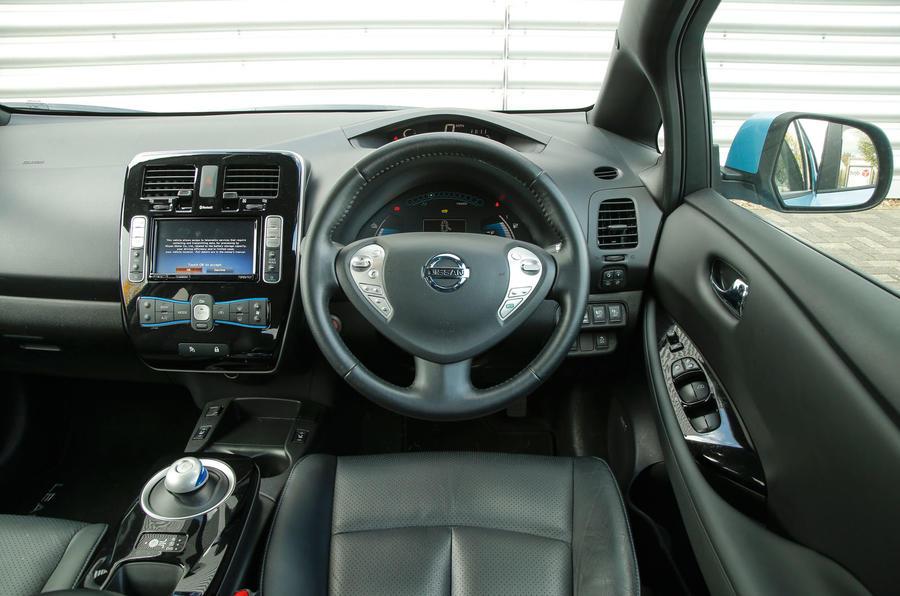
4th. Nissan Leaf 30kWh Tekna
Rating 3/5;
Price £27,380 (inc. £4500 Govt grant);
Typical monthly PCP cost £289;
Power 108bhp;
Torque 187lb ft;
Battery capacity 30kWh;
Charge time 12hrs (3-pin), 5.5hrs (32A wallbox);
Fast-charge standard ChaDeMo (125A, 0.75hrs);
Kerb weight 1535kg;
Power-to-weight 70bhp per tonne;
0-62mph 11.5sec;
Top speed 89mph;
NEDC claimed range 155 miles;
Urban test economy 3.8m/kWh;
Urban test range 114 miles;
Insurance group/cost 22E/£640
WHAT CAR?
Subscribe to Independent Premium to bookmark this article
Want to bookmark your favourite articles and stories to read or reference later? Start your Independent Premium subscription today.
Join our commenting forum
Join thought-provoking conversations, follow other Independent readers and see their replies
Comments